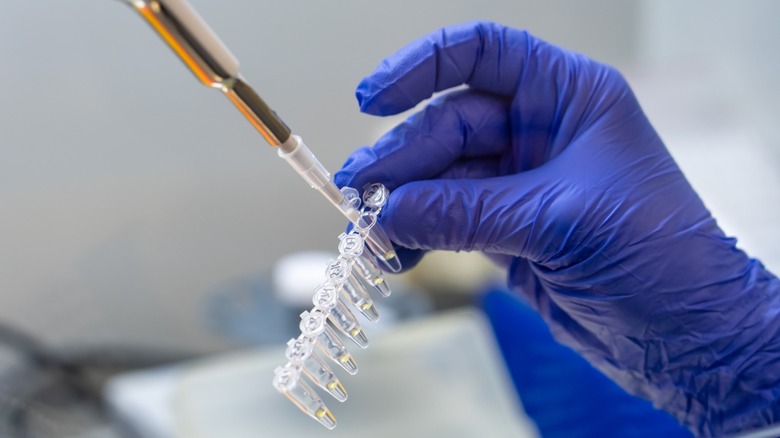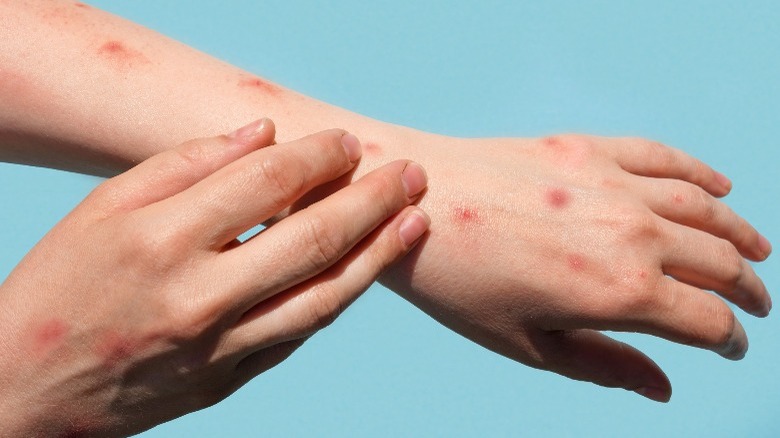How The Stigma Around Monkeypox Is Leading To Testing Delays
U.S. cases of monkeypox continue to trend higher, per the Centers for Disease Control and Prevention (CDC) data tracker. Now, many feel monkeypox has been characterized as a disease largely attributed to the LGBTQ+ community. As a result, it has brought on additional stigma that is leading technicians at commercial labs to refuse blood from patients suspected of having monkeypox, per CNN. What remains unclear is whether these lab technicians are making this choice on their own or due to company policy.
Even though healthcare experts ultimately diagnose monkeypox by swabbing lesions, phlebotomists — the healthcare specialists who draw blood — need to take blood samples to differentiate the monkeypox virus from other forms of infections. It is an essential part of the process and considered standard care. David Harvey, executive director of the National Coalition of STD Directors, told CNN that the refusal of these lab technicians to draw blood from patients who may have monkeypox is "a grave dereliction of duty" and "a modern-day example of discrimination."
Diane Crawford, CEO of the National Phlebotomy Association, described the situation as disappointing, especially considering that monkeypox is not a new virus in the U.S. — there were a number of cases in 2003 and a couple of cases in 2021. Additionally, phlebotomists regularly draw blood from people who may have any number of infections, so drawing blood for monkeypox specifically should not instill fear, per CNN.
How to protect yourself against monkeypox
First discovered in 1958 when scientists were conducting research on monkeys, health experts fear that monkeypox may mutate and grow into an epidemic. Some think it may take the place of the similar smallpox virus, which was eliminated globally in 1980 through vaccination efforts. According to NPR, this version of monkeypox is not deadly and has a 99% survival rate. However, it is important to protect yourself, especially considering that the World Health Organization (WHO) declared monkeypox a public health emergency last month.
Monkeypox spreads through human-to-human contact, such as via droplets, saliva, or lesions. Monkeypox symptoms include fever, headaches, and muscle aches, lesions, among others. You can protect yourself in a number of ways, including trying to maintain personal space, containing contaminated materials such as bedding, clothing, and towels until you can launder them, and frequent hand-washing with soap and water. You may also be able to get one of the two available vaccines; however, this may be challenging due to your eligibility and the current limited supply of one of the vaccines, per NPR.
If you think you may be infected, try to get a blood test if you can. Otherwise, avoid scratching suspected lesions, keep your skin dry and exposed to the air, and clean your skin with antiseptics. Take warm baths with baking soda or Epsom salts if you have lesions on your body, per NPR.


